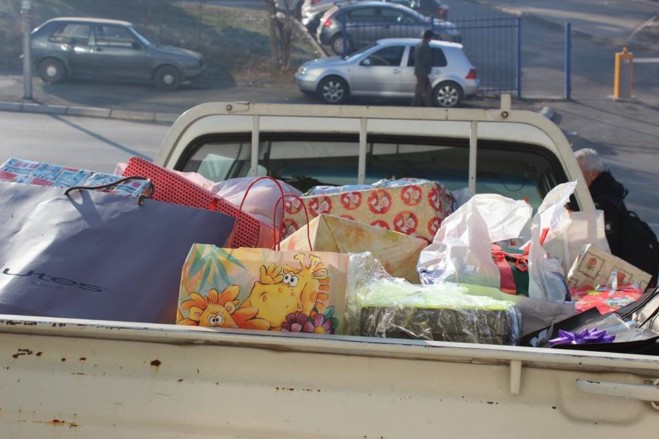N.A. is a 68-year-old who has been living in poverty for thirty years. He lives with his wife, his two sons, and his daughter-in-law in a shack in the neighborhood “Bregu i Diellit” (Sunny Hill) in Prishtina. He used to be a construction worker but never had an employment contract. According to him, old age and the condition of his health make it impossible for him to find work. He has diabetes, partial paralyses, problems with his spinal column, and partially lost his sight.
N.A. and his family live on social welfare worth 90 euros per month. He says that the medicine he needs costs up to 80 euros, which is very expensive for him. His family gets food from neighbors and the Red Cross from time to time. Since the shack they live in does not have a foundation or insulation, wind, rain and mice get inside.
“It is very hard not to have your own salary and to be left to the mercy of others to feed your children. My heart breaks every time I see the room without heating where my children have slept all winter,” he says.
His other family members are not employed either. N.A. says that his wife is old, too, and can’t work, one of his sons is still in high school, and the older son can’t find a job.
“A lot of nights I can’t sleep because I feel bad that I can’t give my children the things they want. My children ask me why have other created such big capitals and I haven’t, but I couldn’t do more,” says N.A.
In 2016, The Ministry of Labor and Social Welfare has spent approximately 29 million Euros on social welfares for families living in poverty all through Kosovo. From 25,551 families that have gotten financial aids in January, this number reached 26,302 by December.
Social welfare is 50 Euros per month for one person, 65 Euros for families with two members, and an extra 5 Euros for every other member or 15 Euros for children still at school. This financial aid can reach 130 Euros per month.
Many NGOs in Kosovo and abroad help Kosovar families in need. These NGOs, different TV shows, and good willed people sometimes collect funds, clothes, and hygienic products to help needy families.
Antigona Sopjani, coordinator at the Red Cross, with branches in over 26 municipalities of Kosovo, says that they have up to 5 million volunteers who help those in need. Together with their volunteers, the Red Cross of Kosova has registered approximately 17,000 families around Kosovo in need of food, clothes and hygienic products.
“The Red Cross has limited capacities and we are not able to offer shelter to our citizens, although we want to,” says Spojani.
Families in need also get aid from the Mother Teresa Association, an organization that began in the 1990s. Zef Shala, the executive director, says that his association functions in different pillars: the humanitarian pillar, the development pillar and the pillar of peace and tolerance.
Shala emphasizes that the Mother Teresa Asociation has local cooperation and gets funds from every municipality of Kosovo to help the citizens of each respective municipality. The association also hasinternational cooperation and gets funds from different embassies, UNDP, USAID, etc.
“In cooperation with Mother Teresa association, we have build over 170 houses after the war,” says Shala.
They also have donors that gather money abroad to help the citizens of Kosovo. Later, the association and its volunteers help these donors find families in need and distribute the aid.
This organization also has development projects aiming to give new skills to different families. In cooperation with different embassies in Kosovo, they donated start-up packs to families in need. Thanks to this project, 20 families received beehives, 20 families received greenhouses and 20 families received goats. According to Shala, through projects like these, they have built skills for over 200 families since 2000 to enable them to provide for themselves.
“We taught these families to fish instead of giving fish to them … A year later, these families are able to provide for their own families and don’t need social welfare anymore,” he says.
Bulza Çapriqi










